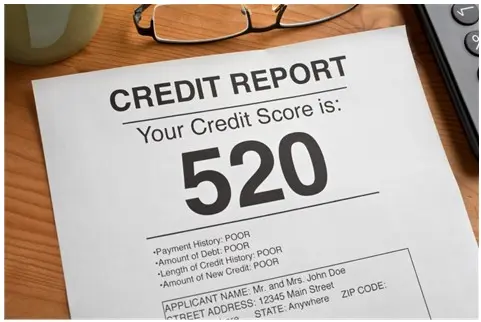Simple Answers to Your Credit Questions
- Learn the basics of building and keeping good credit.
- Set up automatic payments to avoid credit-killing late payments.
- Check your credit report regularly, for free.
10 Tips on How to Improve Your Credit
"How do I get help with my credit score?" is one of the most commons questions that Bills.com receives.
Your credit score is very important. Creditors use it to figure out whether to grant you credit and your interest rates. Landlords use it when they decide whether to rent to you and some employers when making hiring and promotion decisions.
Building and maintaining your credit takes consistent, long-term action. Small slip-ups will remain on your report for years and can prevent you from qualifying for an important loan, such a as a home mortgage loan or auto loan. Make sure you take the right steps to keep your credit in good shape.
10 Basic Credit Tips that answer the question, "How do I help my credit, now?"
- Check Your Credit Regularly- The Federal Reserve cited estimates that up to 79% of all credit reports have errors and 25% have errors serious enough to lead to a person being denied credit due to the error! You can monitor your credit report for accuracy at no cost. You're entitled to one free credit report from each of the three main credit bureaus every year. Get your free reports at www.annualcreditreport.com. These reports don't have a credit score, but contain all your account history and public record notes. You can use the online free-credit services that advertise on TV and elsewhere. These come with credit scores, but be aware that the "free" report is usually tied to paying for some other service that is offered, such as credit monitoring. With most of these services, you can cancel your membership within one or two weeks of signing up and pay no fee.
- Dispute Errors- Check your report for any errors. If you find errors, dispute them with both the credit bureau that lists them and with the creditor that reported them. Be sure that there are no incorrect derogatory remarks, such as late payments, incorrect balance information, or accounts that don't belong to you. Read the Bills.com article about the credit dispute process.
- Don't Run up Debt- You won't be able to establish or keep good credit if you have debt problems. If you currently have debt problems, it makes sense to first take care of your debt, then focus on improving your credit. It is easier to build credit than it is to get rid of debt.
Quick Tip
Receive a no-cost, no-hassle debt relief quote from one of Bills.com’s pre-screened debt relief providers.
- Use Credit to Build Credit- The only way to build and maintain a good credit score is to establish and responsibly use credit. Use your cards, so they show activity, but pay your bill in full each month. If you have no credit history, consider a secured credit card. Make sure that it is one that reports to the credit bureaus each month.
- Pay Bills on Time- Payment history is the most important part of your credit score. It makes up 35% of your score. Late payments can wreck your score; avoid them like the plague. So you never miss a payment, set up an automatic payment with your creditors, at their Web site, or use the online bill-pay service your bank offers.
- Don't Carry High Balances- 30% of your score is based on your credit utilization, the portion of your available credit limit that you use. Keep your monthly balances at less than 30% of your credit limit. Be aware of your credit limit, to monitor changes your creditor makes, because it can lower your score. For example a $3,000 balance on a card with a $10,000 limit does not harm your score. However, if your creditor lowers your limit to $8,000, the same $3,000 will harm your score, due to poor credit utilization.
- Don't Close Old Accounts- Your account history counts for 10% of your credit score. Even if you are not using an old account, don't close it. Use it, from time to time, but keep the balance at $0 or as low as possible
- Have a Mix of Accounts- Ideally, you want to have a mixture of both revolving credit accounts (credit cards) and installment accounts (personal loans, store accounts you pay over time, mortgages and student loans). However, don't take out a loan just to improve your credit mix.
- Be Careful Opening New Accounts- Your score takes a hit when creditors make credit inquiries, when you apply for a credit account. If you are shopping for an auto or mortgage loan, all the inquiries made for the same product within 14 days count as one inquiry against your score. Each inquiry will appear on your report, but your score is only dinged once. You are never penalized for checking your own score.
- Know Your Rights- The Fair Credit Reporting Act (FCRA) is a federal law that governs how your credit information is used, shared, and collected. A key part of the FCRA states that derogatory accounts can stay on your report for 7½ years from the time of first delinquency. It's important that you know your rights, so you can protect yourself.
